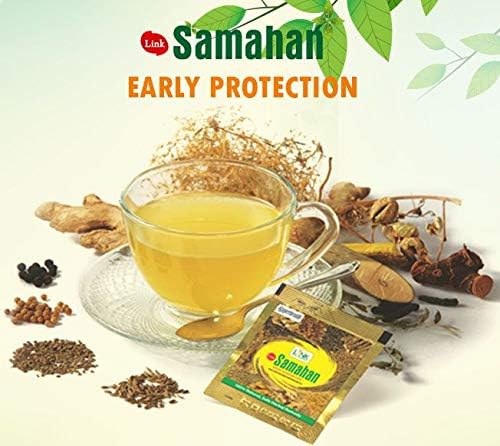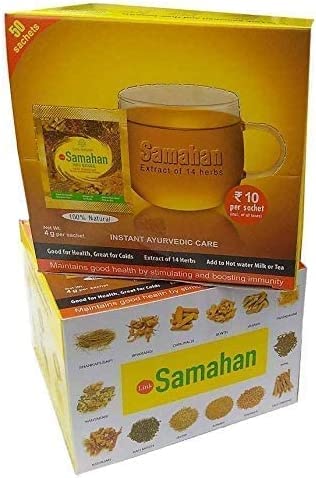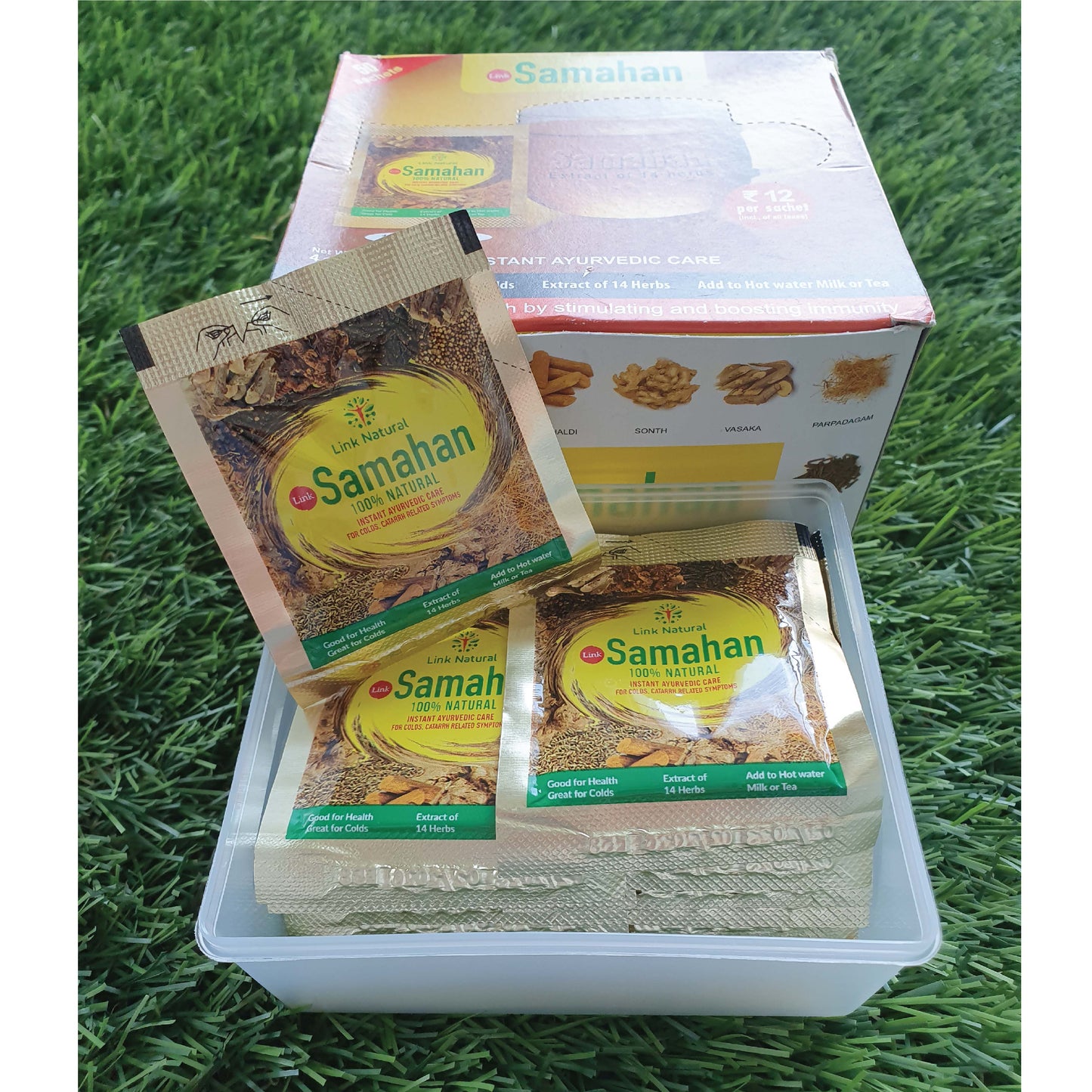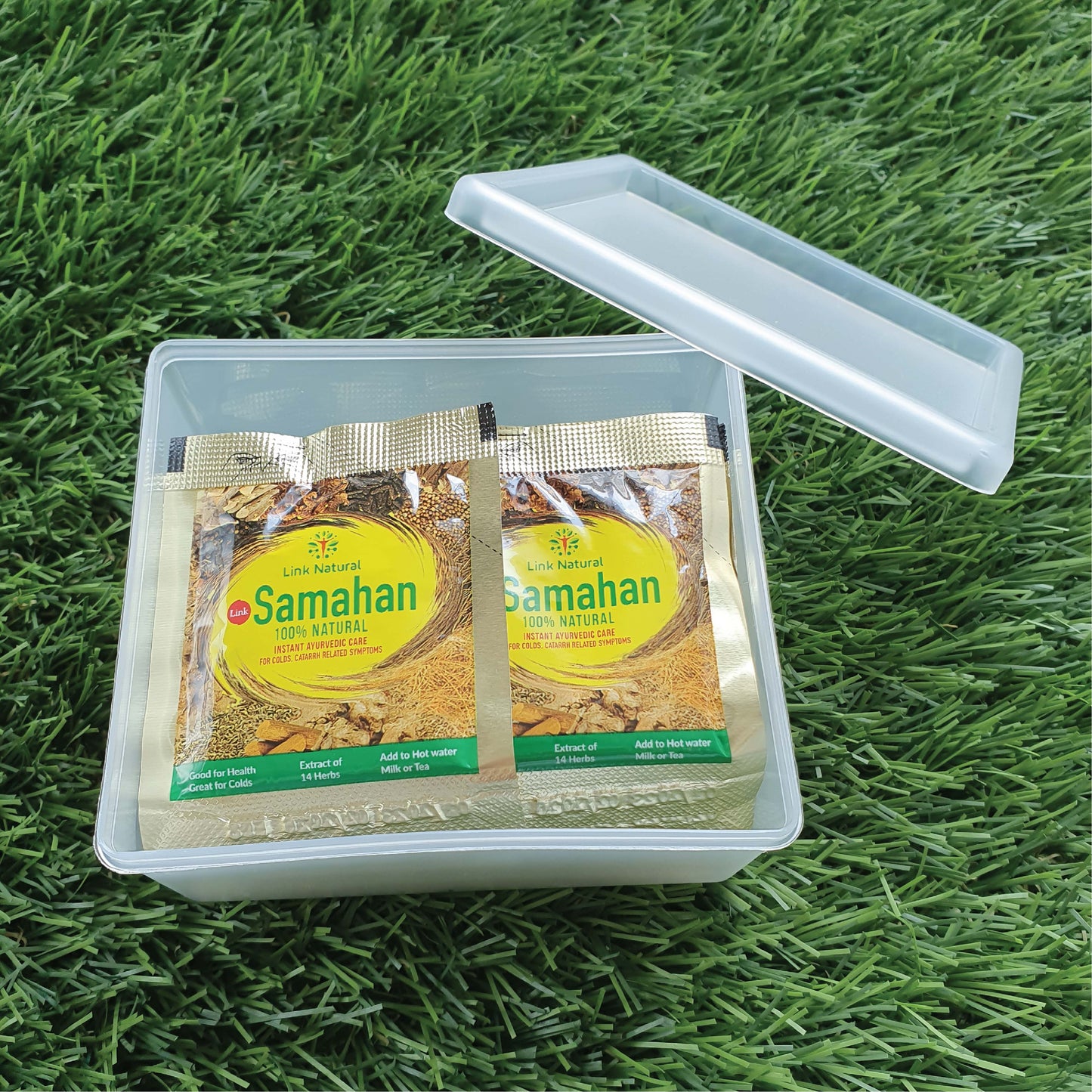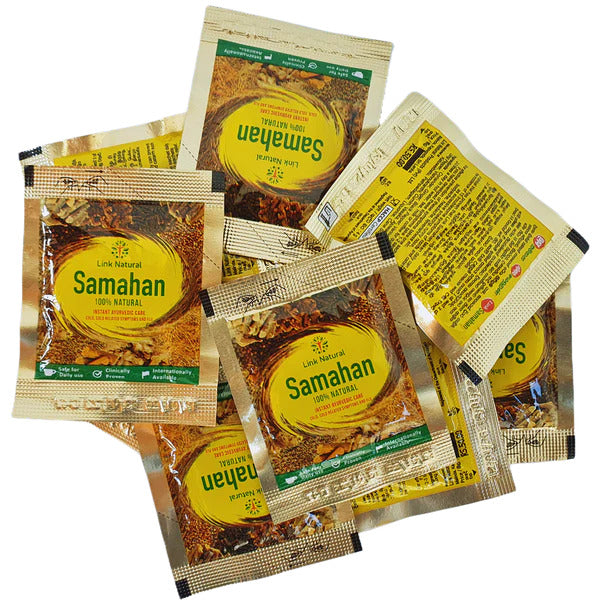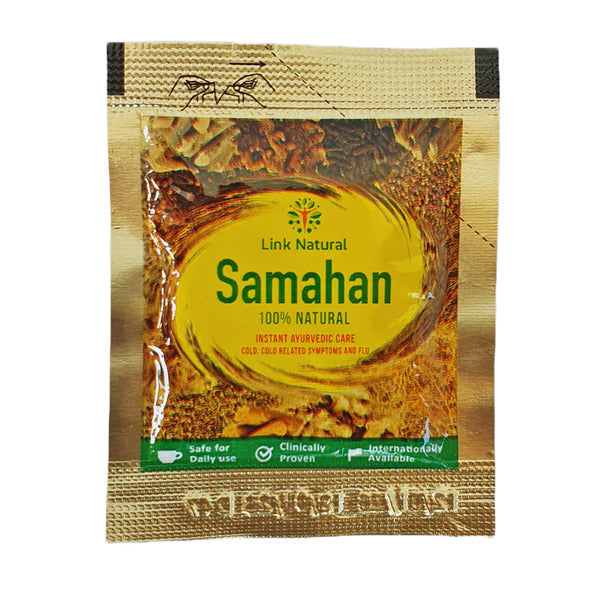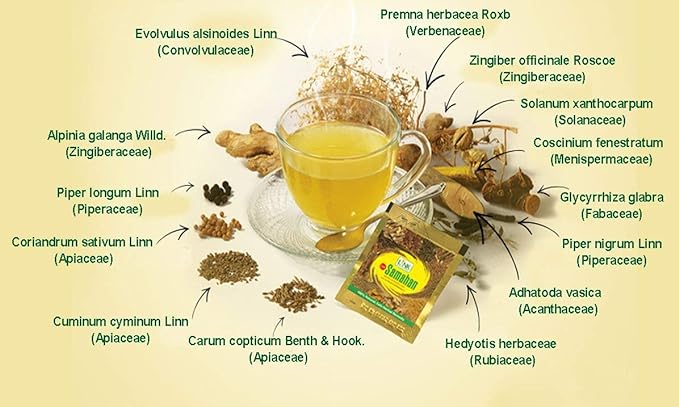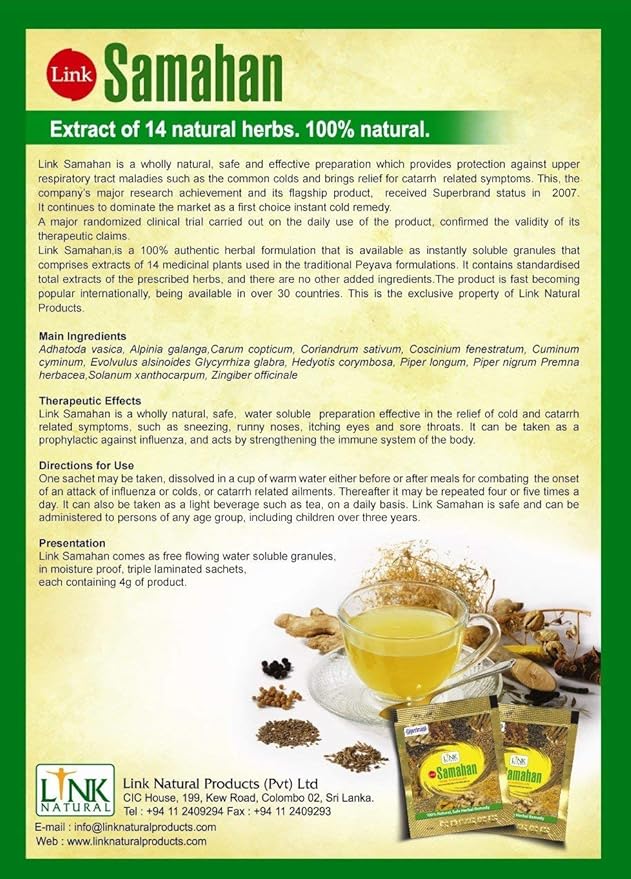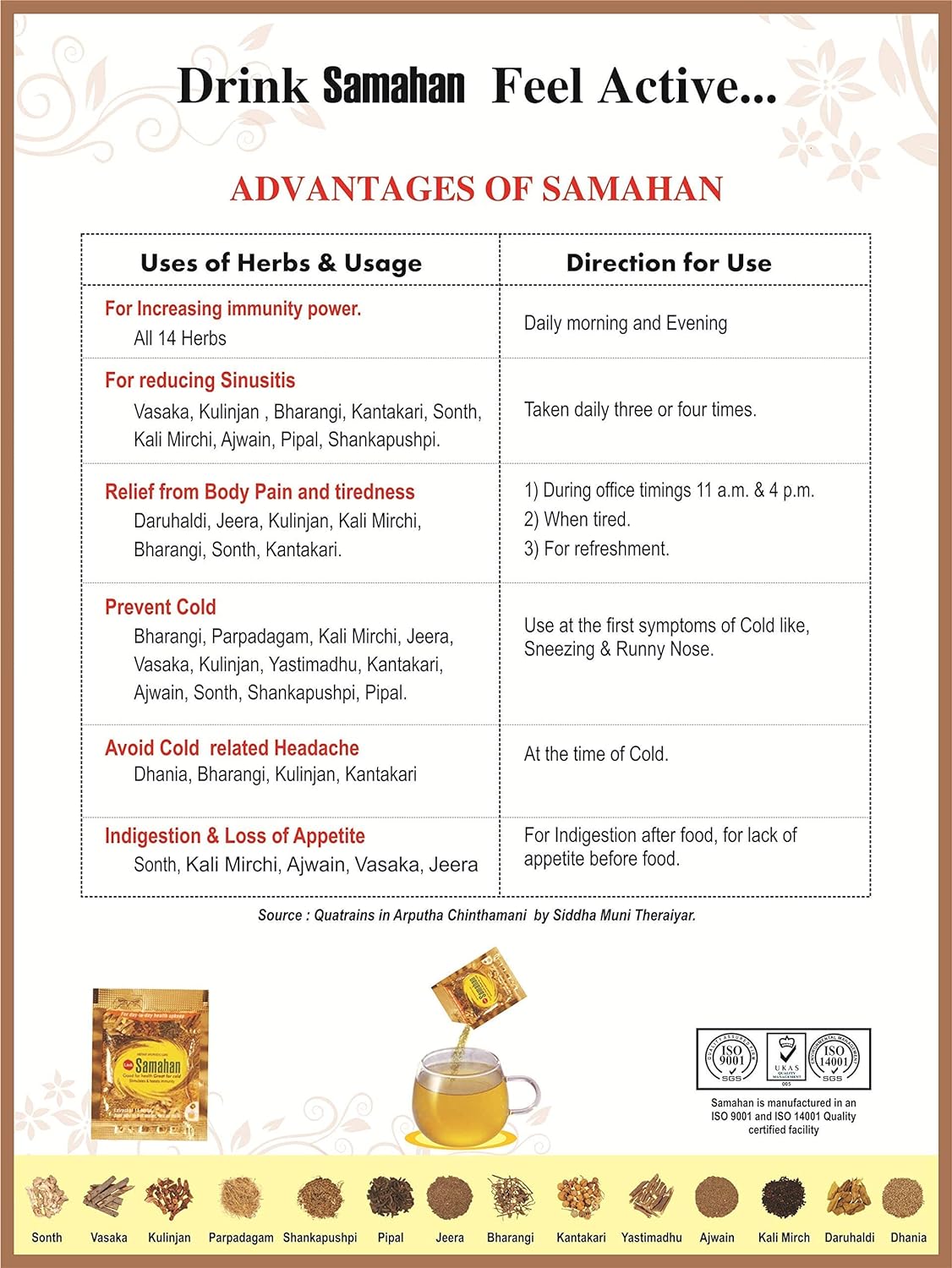Ayurveda, the "science of life," stands as one of the world's oldest medical systems, hailing from India. Founded on the principle of mind-body-spirit harmony, it seeks to prevent disease and maintain well-being through natural methods. Let's delve into the essence of Ayurveda, its key tools, and how Link Samahan claims to align with its wisdom.
The Five Pillars of Ayurveda:
- Doshas: Vata (air), Pitta (fire), and Kapha (earth/water) are the three bio-energies believed to govern internal systems. Imbalances cause disease.
- Panchakarma: Five detoxification techniques – emesis, purgation, enema, bloodletting, and nasal therapy – restore balance.
- Diet: Tailored to each dosha type, emphasizing specific foods and avoiding others for optimal digestive health.
- Lifestyle: Yoga, meditation, and daily routines maintain harmony.
- Herbal Remedies: Natural ingredients – like turmeric, ashwagandha, and tulsi – address specific ailments and imbalances.
The essence of this science known as the “ 5 Pillars of Ayurveda” consists of
- Elements : Vata (wind), Pitta (fire) and Kapha (earth/water) are the three types of bioenergy. It is believed to control the internal systems of the body. When the elements are out of balance, illness will occur.
- Panchakarma : Five detoxification techniques: evacuation of vomit, defecation, and enema. release of blood and nasal irrigation to restore balance
- Food : Select according to the elements. Focus on certain foods and avoid others. For optimal digestive health
- Lifestyle : Yoga, meditation and daily routine. Helps maintain balance
- Herbal Medicine Formula : Natural ingredients such as turmeric, asavakanth and holy basil help treat specific ailments and correct imbalances.
Link Samahan , herbal drink based on the principles of Ayurveda
Link Samahan is a herbal drink with ingredients based on Ayurvedic medicinal recipes. There are up to 14 types of ingredients. Each kind has a role and benefits for the body. Let's analyze it:
Herbal ingredients that help with the respiratory system
- Skunk (Acanthaceae): This type of herb. Also known as Malabar Nut , it has the effect of expelling phlegm and expanding the bronchi, making it valuable in treating coughs, bronchitis and respiratory diseases. Ayurvedic medicine praises it for its ability to dissolve mucus and relieve congestion.
- Licorice (Fabaceae): Licorice root has anti-inflammatory and expectorant properties, helping treat respiratory problems.
Herbal ingredients that help strengthen immunity
- Menispermaceae: Plant in the same family as wormwood. Its bitter roots have the ability to strengthen the immune system.
- Ginger (Zingiberaceae): has digestive properties. anti-inflammatory and strengthen immunity
Herbal ingredients that help with the digestive system Clean out residual toxins
- Galangal (Zingiberaceae): Galangal has many properties. Known for its anti-inflammatory and digestive stimulating effects. It is used in Ayurvedic medicine to treat nausea, bloating and abdominal discomfort.
- Yaowapani Candle (Apiaceae): Also called Ajowan , it has a strong fragrance. In Ayurveda, it is praised for its carminative properties, relieves bloating, and relieves stomach pain. Helps the digestive system more efficiently
- Coriander (Apiaceae): In addition to being used in cooking, coriander seeds play an important role in Ayurveda. It has digestive properties. Control blood sugar levels and antioxidants
- Deepli (Piperaceae): has digestive properties, expels gas, and relieves bloating. and strengthen the respiratory system Cough relief
- Black Pepper (Piperaceae): A commonly found spice. Has the property of stimulating digestion increase nutrient absorption Antioxidants and anti-inflammatory
- Hammer Head (Verbenaceae): This multipurpose herbal medicine, called Agnimantha , is important in Ayurveda. Due to its properties in stimulating digestion Control blood sugar levels and anti-inflammatory
- Cumin (Apiaceae): A common spice. Outstanding in Ayurveda With properties that help in digestion stimulate digestive enzymes Helps flush out toxins Control blood sugar levels and anti-inflammatory
- Eggplant (Solanaceae): Yellow eggplant, called Kantakari , plays a role in Ayurveda. This is due to its diuretic, liver-protective and detoxifying properties.
Herbal ingredients that help enhance overall health
- Leaves per stem (Convolvulaceae): This type of herbal medicine. Also known as Shankhpushpi , it has many medicinal properties in Ayurveda. Known for strengthening the brain and memory.
- Snake Tongue Grass (Rubiaceae): This herbal medicine. Also known as Echibhanga , it has important value in Ayurveda. Anti-inflammatory and wound healing properties This makes it useful in treating skin diseases and enhancing overall health.
Link Samahan is a herbal drink based on Ayurvedic medicine. It has properties that help the respiratory system, detoxify, fight inflammation, helps with digestion, boost immunity and promote the holistic health. Conforming to the principles of Ayurveda, it helps adjusting the balance of the body for better health.
Nowadays, there is more and more scientific evidence that aligns with the practices of Ayurveda. The use of herbs according to Ayurvedic medicine for their effects in aiding digestion, detoxifying and strengthening the immune system is widely accepted. However, results may vary from person to person, so it is important to study and adapt from them. This should be taken into account in order to unlock the full potential of Ayurveda in promoting personal health.



